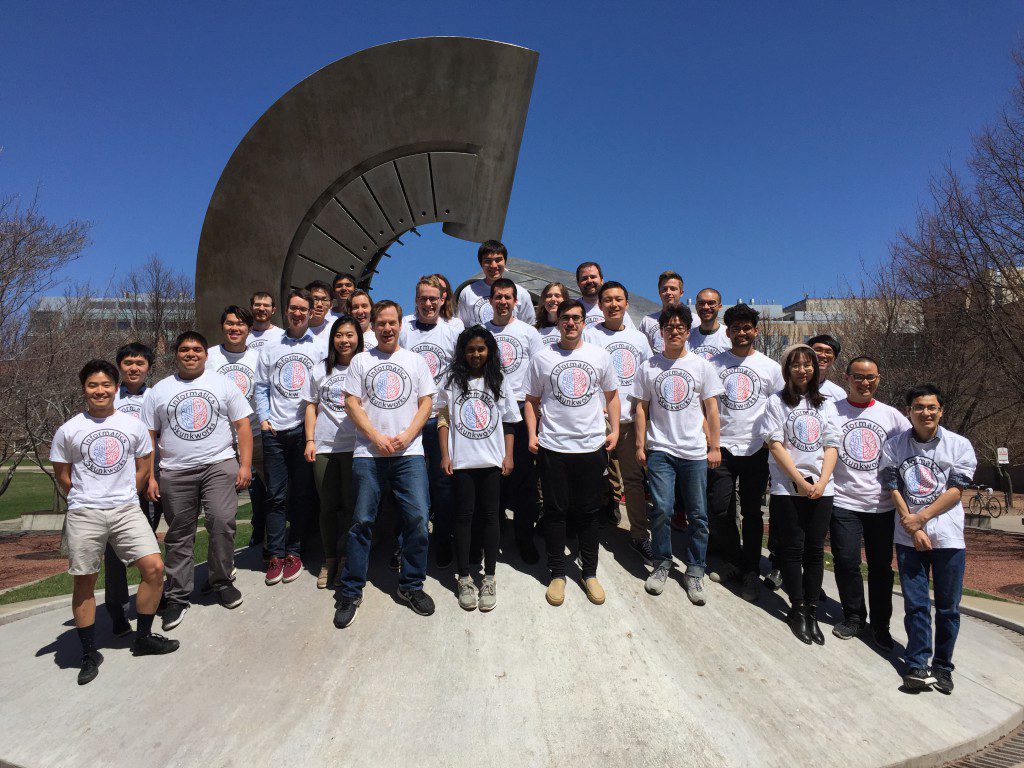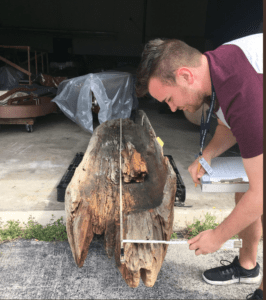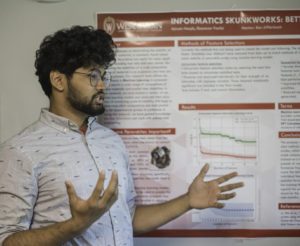
University of Wisconsin–Madison student Ryan Smazal used to spend his summers working at a summer camp, where he might be asked to paddle a canoe. In summer 2018, he got to research Wisconsin dugout canoes through a combination of fieldwork and lab work. This experience, a part of the WISCIENCE Summer Research Scholarship program, is one of many scholarships and research opportunities available to undergraduates during Summer Term.
The program—a collaboration of Wisconsin Institute for Science Education and Community Engagement (WISCIENCE), Summer Term, and the university’s Educational Innovation team—just completed its second year of providing mentored research experiences to undergraduates. In summer 2018, the scholarship was awarded to students new to research and those who had more than two semesters of research experience. In addition to providing new researchers with dedicated time to perform their research over the summer, it provides them with the training, professional development, and mentoring that helps them succeed.
Laying the groundwork for a museum

Smazal, a history and political science major, had never done fieldwork before winning the scholarship. When he came across the opportunity, he knew it was too good to pass up. Smazal developed a formal research proposal, and he and 16 other undergraduates were each awarded $1,500 to work on their dream projects over the summer. The funds get applied to tuition fees for a three-credit independent study and a one-credit course called Entering Research.
Working with Department of Anthropology Chair Sissel Schroeder, a team from the Wisconsin Historical Society, and Michael Wiemann of the USDA Forestry Lab, Smazal spent the summer surveying all but a few of the 36 dugout canoes across the state. He’ll continue his work this fall.
Made of hollowed-out tree trunks, dugout canoes are the among oldest boats archaeologists have found, dating back to the Neolithic Stone Age 8,000 years ago. Native Americans in Wisconsin and beyond were particularly adept at crafting these boats, some of which now live in museums.
“It’s definitely a big change,” Smazal says of the difference between his coursework and canoe-focused research, “but one that I think easily fits in with my majors.”
Smazal’s goal is to feed all of his measurements and documentation into a database. He hopes to use this resource to create a virtual, three-dimensional museum of canoes.
Building confidence and communication skills

The WISCIENCE Summer Research Scholarship allows students to research a wide range of topics that interest and inspire them. It also bolsters their confidence and communication skills.
“The students in the program report large gains in confidence in their research and science communication skills, and that is nowhere more apparent than during their poster presentations. It is really remarkable how much their understanding grows during this experience” says Amber Smith, WISCIENCE’s director of research mentor and mentee training.
Scholarship recipient Angeline Mboutngam spent her summer working with Yolanda Tolson-Eveans of the School of Pharmacy and Kevin Dwyer of Where Is Care. She studied ways to close the information gap between community members and health insurance service providers to help low-income patients access the health services they need, even if they are uninsured or underinsured.
Meanwhile, Amanda Pandl worked with Anthony Auger and Liza Chang of the Department of Psychology to understand how opioid system disruption in the developing brains of rodents influences their behaviors as juveniles. Other students worked on projects in disciplines such as biomedical engineering, agronomy, and plant pathology.
Ajmain Naqib was already working in a lab when he applied for the scholarship, which took his research experience to another level. Over the summer, worked alongside engineering professor Dane Morgan and mentor Ben Afferbach, discovering ways to reduce the cost of solar panels. Using machine learning, a type of artificial intelligence, Naqib and others predicted the stabilities of a range of solar-cell manufacturing materials called perovskites. The team’s work will help make solar-panel production more efficient in terms of both time and money.
Naqib says the 15 hours a week he spent in the lab paid off, deepening his understanding of machine learning and research.
“I’m using the knowledge I learn in class … in research, which helps me grasp certain concepts,” he explains.
For more information on the WISCIENCE Summer Research Scholarship, contact Amber Smith, 608-265-0850, amber.smith@wisc.edu. For details about summer learning opportunities at UW–Madison, including classes and research programs, visit the Summer Term website.